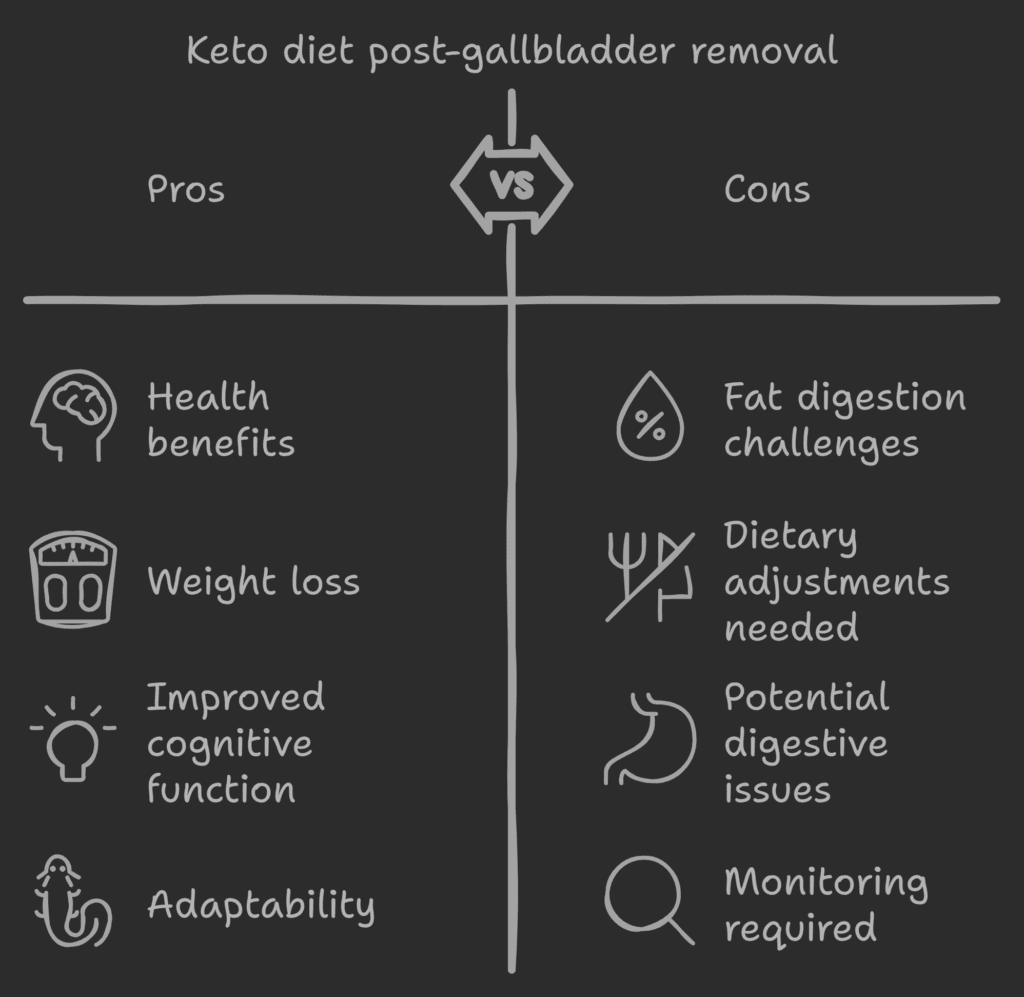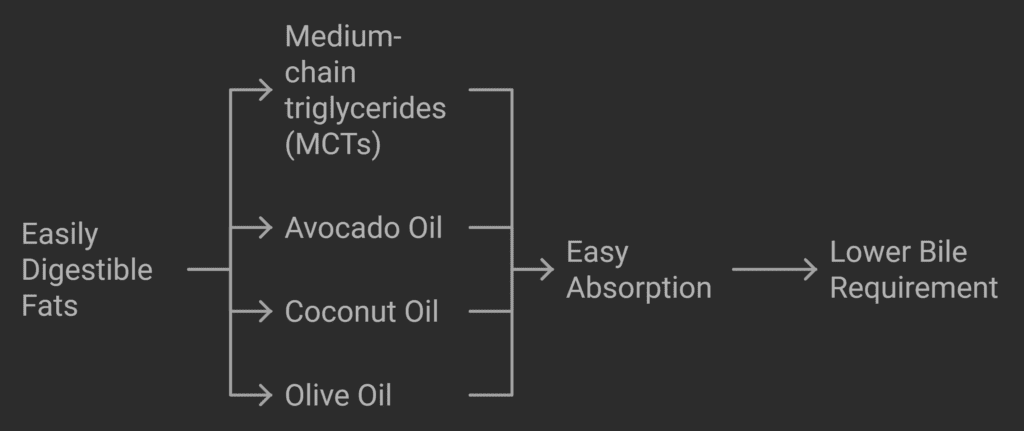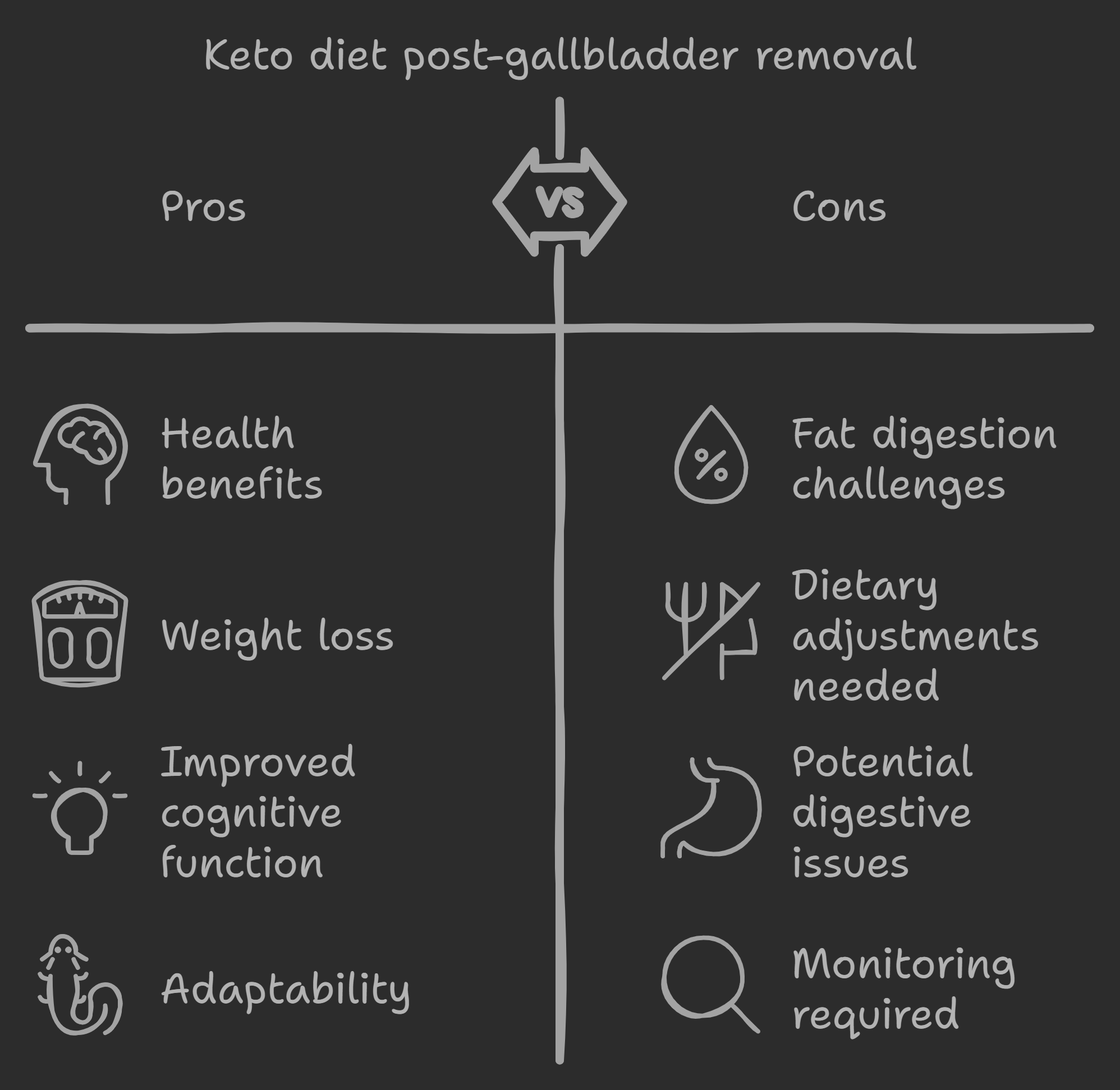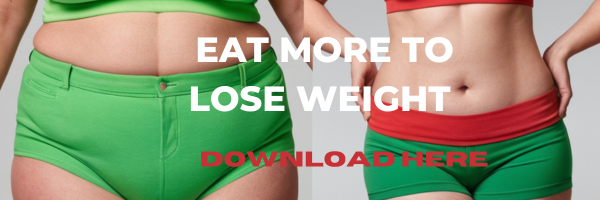The ketogenic diet has gained immense popularity for its potential health benefits, but what happens when you don’t have a gallbladder? This organ plays a crucial role in fat digestion, leading many to wonder if keto is still a viable option post-cholecystectomy. In this article, we’ll explore the intricacies of following a keto diet without a gallbladder, providing you with the knowledge to make informed decisions about your nutritional journey.
The ketogenic diet, characterized by high fat, moderate protein, and low carbohydrate intake, has been shown to offer numerous health benefits, from weight loss to improved cognitive function. However, the absence of a gallbladder, which stores and concentrates bile for fat digestion, presents unique challenges for those wanting to embrace this high-fat lifestyle. Despite these challenges, many individuals have successfully adapted to a keto diet post-gallbladder removal, suggesting that with the right approach, it’s possible to reap the benefits of ketosis even without this organ.

The relationship between the gallbladder and fat digestion dates back to ancient times, with the first descriptions of this small but mighty organ appearing in Babylonian texts from 2000 BCE. For centuries, the gallbladder was considered essential for proper digestion, particularly of fats. However, modern medical advancements have shown that while the gallbladder enhances fat digestion, it’s not indispensable. The liver continues to produce bile, albeit in a less concentrated form, allowing for fat digestion to occur even in the absence of a gallbladder.
In recent years, the ketogenic diet has emerged as more than just a weight loss strategy; it’s become a lifestyle choice for many seeking to optimize their health. This high-fat, low-carb approach triggers a metabolic state called ketosis, where the body burns fat for fuel instead of carbohydrates. For those without a gallbladder, achieving and maintaining ketosis may require some additional considerations and strategies, but it’s far from impossible.
Consider the case of Sarah, a 35-year-old who had her gallbladder removed due to chronic gallstones. Initially hesitant to try keto, fearing digestive issues, she worked closely with a nutritionist to gradually increase her fat intake. By starting with easily digestible fats and slowly ramping up, Sarah successfully transitioned to a ketogenic diet, experiencing improved energy levels and weight loss without the digestive discomfort she initially feared.
As we delve deeper into the topic of keto without a gallbladder, we’ll explore practical strategies, potential challenges, and expert insights to help you navigate this unique dietary landscape. Whether you’re considering keto post-cholecystectomy or looking to optimize your current approach, this guide will provide you with the tools to make informed decisions about your health and nutrition.
Keto Without a Gallbladder: Navigating Fat Adaptation Post-Surgery
Embarking on a ketogenic diet without a gallbladder may seem daunting, but with the right approach, it’s entirely feasible. The key lies in understanding how your body adapts to processing fats in the absence of this organ. While the gallbladder typically stores and concentrates bile, aiding in fat digestion, your liver continues to produce bile even after gallbladder removal. This ongoing bile production is what makes fat adaptation possible, albeit with some adjustments to your dietary approach.
Understanding the Role of Bile in Fat Digestion
Bile, produced by the liver, plays a crucial role in fat digestion. Without a gallbladder, bile flows directly into the small intestine in smaller, less concentrated amounts. This continuous trickle of bile can still effectively emulsify fats, but it may require some dietary modifications to prevent digestive discomfort.
Gradual Fat Adaptation: The Key to Success
For those without a gallbladder, the transition to a high-fat ketogenic diet should be gradual. Start by slowly increasing your fat intake over several weeks or even months. This approach allows your body to adjust to processing larger amounts of fat without overwhelming your digestive system.
Choosing the Right Fats
Not all fats are created equal, especially when you’re adapting to keto without a gallbladder. Focus on easily digestible fats such as:
- Medium-chain triglycerides (MCTs)
- Avocado oil
- Coconut oil
- Olive oil
These fats are more easily absorbed and require less bile for digestion, making them ideal for those without a gallbladder.

Supplementation for Optimal Fat Digestion
To support fat digestion, consider incorporating the following supplements:
- Ox bile: Helps replace the concentrated bile normally released by the gallbladder
- Lipase: An enzyme that aids in breaking down fats
- Digestive enzymes: A comprehensive blend to support overall digestion
Always consult with a healthcare professional before starting any new supplement regimen.
Timing Your Meals
Without a gallbladder, the timing and size of your meals can significantly impact digestion. Consider the following strategies:
- Eat smaller, more frequent meals throughout the day
- Avoid large, high-fat meals, especially late at night
- Give your body time to digest between meals
Monitoring Your Body’s Response
As you adapt to a ketogenic diet without a gallbladder, pay close attention to your body’s signals. Keep a food diary to track which foods and meal timings work best for you. Common signs that your body is adapting well include:
- Improved energy levels
- Stable mood
- Better cognitive function
- Gradual weight loss (if that’s your goal)
If you experience persistent digestive issues, consult with a healthcare provider or a nutritionist specializing in ketogenic diets.
The Importance of Fiber
While the ketogenic diet is typically low in carbohydrates, ensuring adequate fiber intake is crucial, especially without a gallbladder. Fiber helps regulate bowel movements and can mitigate potential digestive issues. Focus on low-carb, high-fiber foods such as:
- Leafy greens (spinach, kale, arugula)
- Cruciferous vegetables (broccoli, cauliflower)
- Chia seeds
- Flaxseeds
Hydration: A Critical Component
Proper hydration is essential for everyone, but it’s particularly crucial for those on a ketogenic diet without a gallbladder. Adequate water intake helps support digestion and can prevent constipation, a common concern for those new to keto. Aim for at least 8-10 glasses of water per day, and consider adding electrolytes to maintain proper mineral balance.
Long-term Success on Keto Without a Gallbladder
Many individuals have successfully maintained a ketogenic lifestyle long-term after gallbladder removal. The key to long-term success lies in listening to your body, making adjustments as needed, and working closely with healthcare professionals to monitor your health. Regular check-ups and blood work can help ensure that you’re meeting your nutritional needs and maintaining optimal health on your keto journey.
By following these guidelines and remaining attentive to your body’s signals, you can successfully navigate the world of keto without a gallbladder. Remember, everyone’s journey is unique, and what works for one person may need to be adjusted for another. With patience, persistence, and the right approach, you can enjoy the benefits of a ketogenic lifestyle, even post-cholecystectomy.
Frequently Asked Questions About Keto Without a Gallbladder
Is it safe to follow a keto diet without a gallbladder?
Yes, it can be safe to follow a keto diet without a gallbladder, but it requires careful planning and gradual implementation. Many people successfully adapt to a high-fat diet post-cholecystectomy. However, it’s crucial to consult with a healthcare provider or nutritionist before making significant dietary changes, especially if you have any underlying health conditions.
How long does it take to adapt to a keto diet after gallbladder removal?
The adaptation period can vary significantly from person to person. Some individuals may adjust within a few weeks, while others might take several months. It’s important to transition slowly, gradually increasing fat intake over time. Pay attention to your body’s signals and adjust your approach as needed. Patience is key during this adaptation phase.
What are the best fats to consume on keto without a gallbladder?
The best fats for those without a gallbladder are typically those that are easier to digest. These include:
- Medium-chain triglycerides (MCTs)
- Coconut oil
- Avocado and avocado oil
- Olive oil
- Ghee (clarified butter)
Start with small amounts and gradually increase as your body adapts.
Are there any supplements that can help with fat digestion on keto without a gallbladder?
Yes, several supplements can support fat digestion for those without a gallbladder:
- Ox bile supplements
- Digestive enzymes, particularly lipase
- Betaine HCl (to support stomach acid production)
- Milk thistle (to support liver function)
Always consult with a healthcare provider before starting any new supplement regimen.
How can I manage digestive discomfort on keto without a gallbladder?
To manage digestive discomfort:
- Start with a gradual transition to higher fat intake
- Eat smaller, more frequent meals
- Stay well-hydrated
- Consider using digestive enzymes or ox bile supplements
- Incorporate easily digestible fats
- Include adequate fiber in your diet
- Avoid very large, high-fat meals, especially late at night
If discomfort persists, consult with a healthcare provider to rule out any underlying issues.
Conclusion: Thriving on Keto Without a Gallbladder
Embarking on a ketogenic diet without a gallbladder may seem challenging, but with the right approach, it’s entirely achievable. The key insights we’ve explored demonstrate that while the absence of a gallbladder requires some adjustments, it doesn’t preclude you from enjoying the benefits of a ketogenic lifestyle.
Remember, the journey to fat adaptation is highly individual. What works for one person may need to be tweaked for another. By focusing on gradual transitions, choosing the right types of fats, and listening to your body’s signals, you can successfully navigate the world of keto post-cholecystectomy. Always prioritize your health and well-being, and don’t hesitate to seek professional guidance as you embark on this nutritional journey. With patience, persistence, and the right strategies, you can thrive on a ketogenic diet, even without a gallbladder.



